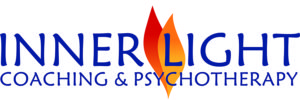How to Prepare Yourself for True Love
If you’re reading this article, congratulations to you. It means you’re in a space of creating the reality you want for yourself. Setting an intention is very powerful, but only when we follow through by living in ways and making choices that are aligned with our intentions.
Knowing how to prepare yourself for true love starts with an understanding of what true love is not and what it is. True love is not desperation, neediness, or fear based. True love is not about intense passion, though that can be a wonderful aspect of a true love relationship. True love happens between two strong, autonomous people who have the ability for healthy interdependence. In other words, two people who know and honor themselves, while also being able to honor their partner. With true love there is a genuine, loving desire to give and a healthy ability to receive.
The good news is that there are absolutely things you can do to prepare yourself for true love. The things you can do are all about understanding yourself and taking steps to grow emotionally to develop the abilities needed to be in a true love relationship. When you have these abilities, others who don’t have them won’t be attractive to you.
We all create relationship experiences based on our fears, expectations, and neediness. When we haven’t found true love, blaming (others or ourselves) is a natural initial reaction. To prepare for true love we need to move out of blaming into understanding what we’ve done in the past and doing the self-development to show-up differently in the future.
Understand how you are responsible for creating your past love experiences.
The four steps below are recommended to help you understand where you are in being able to have a true love relationship. You can do these on your own through journaling, you can do them with support from family and friends, or you can find professional coaching or psychotherapy help.
-
Identify all the fears that you bring into relationships. These fears burden your relationship, create neediness, and are trigger points for emotional reactions like anger, anxiety, or depression and behaviors like attacking, fleeing, withdrawal/shutting-down, or unhealthy self-soothing activities.
-
Identify all the fears that keep you from being wholly in a relationship. These fears create a dynamic that can be triggering to your partner and cause you to sabotage your relationships.
-
Define your relationship template from your family of origin. We are drawn to recreate the relationship dynamics that are familiar. Often we mistake what’s familiar for true love because we assume what we grew up with is true love. On the flip-side, if what we grew up with was clearly unhealthy, we may do a pendulum swing to an opposite extreme that’s not a true love template either.
-
Define your dance steps in your relationship(s). Identify what things trigger you, what you do in response to being triggered, what your partner(s) has(have) done in response to your move, and then your follow-up behavior. You likely have a predominant dance that you do in response to multiple triggers, and may have other secondary dances. If you’ve done the previous 3 exercises, you should have lots of insight into your dances – what they’re about and where they came from.
Follow self-growth action plans.
Self-awareness in itself is helpful in preparing us for true love. It allows us to be accountable for our reactions, make reparations when appropriate, and start to practice doing something different. Taking further steps to promote healing and growth to change how we show-up in relationship is even more powerful in preparing us for true love. Below are some things you can do.
-
Have a meditation practice. Meditation has been shown to build resiliency and reduce emotional reactivity. That means it can be a tool in shifting us out of automatic, reflexive responses, which we’ve seen don’t promote true love.
-
Journal. Journaling can be a wonderful tool to help us be more resilient, process extreme emotions and experiences, gain new perspectives, be less emotionally reactive, heal past traumas, and more. There are many different journaling techniques to promote healing and growth. If you’re interested, there are books that can introduce you to these techniques, or I recommend you find a journal training offered by a Certified Journal Trainer.
-
Follow a workbook program such as Calling In the One, by Katherine Woodward. Her workbook takes you through psychologically sound readings and exercises to help you prepare for true love. You can do such a program on your own, in a peer group, or in a group offered by a professional.
-
Work individually with a professional coach or therapist. Investing in working with the right professional can pay large dividends towards preparing you for true love. Sometimes the healing and growth work isn’t something we can do on our own and needs professional support. If that’s the case, remember the idea of creating the life you want for yourself, and know the investment in yourself and your vision is worth it!
Heather Leavesley, MA, MA is a Psychotherapist and Personal and Professional Development Coach at Inner Light Coaching and Psychotherapy in Denver, CO. She is a Certified Internal Family Systems Practitioner and a Certified Journal Trainer. She sees clients at her office and offers Skype sessions. You can learn more about her at www.hlcounseling.com or reach her at 720-363-5538.
Email Newsletter
HLCounseling LLC
I am a sole proprietor in private practice, and am not a partnership associated with any other participants.




